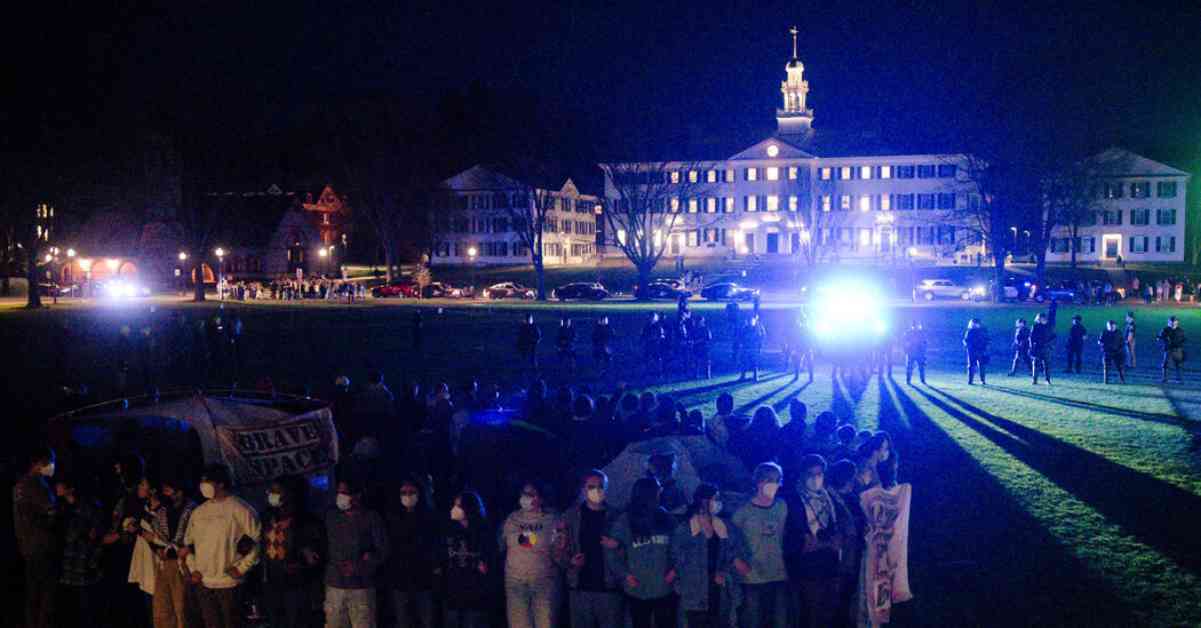As local law enforcement descended on Dartmouth College to clear a protest encampment, tensions ran high and controversy ensued. The swift action taken by Dartmouth’s leader, President Sian Leah Beilock, sparked outrage and resulted in a series of unfortunate events, including injuries and arrests.
Police Intervention
The scene at Dartmouth College on May 1, 2024, was chaotic as New Hampshire State Police, along with Lebanon and Hanover Police, moved to remove protesters from the college green. The encampment had been set up just two hours prior to the police intervention, leading to a rapid escalation of events. As the authorities attempted to disperse the protesters, clashes occurred, resulting in arrests and injuries.
Collateral Damage
Amidst the chaos, a 65-year-old professor found himself on the ground, caught in the commotion of the police intervention. Additionally, two student journalists who were reporting on the events of that night ended up being arrested themselves, further escalating the situation. A bystander who was visiting his father near Dartmouth College also suffered a fractured shoulder in the midst of the unfolding events. The collateral damage caused by the police action raised questions about the appropriate response to student protests on college campuses.
Campus Uproar
President Sian Leah Beilock’s decision to authorize the police action at Dartmouth College sparked a campus uproar that has yet to subside. As a cognitive scientist specializing in the study of performance under pressure, Dr. Beilock’s actions were met with criticism and backlash from the student body and faculty members. The controversy surrounding the handling of the protest encampment has put Dartmouth College at the center of a heated debate on the limits of authority in dealing with student activism.
In the wider context of student protests against Israel’s war in Gaza, colleges across the country have been grappling with how to address encampments and demonstrations on their campuses. Some institutions, such as Northwestern University, opted to negotiate with student protesters, leading to accusations of being too lenient. Others, like Wesleyan University, took a firm stance on disciplinary actions while refraining from using force to disperse the protesters, emphasizing a commitment to nonviolence.
The events at Dartmouth College serve as a microcosm of the larger societal issues surrounding freedom of expression, the right to protest, and the use of force by authorities. The fallout from the police intervention and the subsequent controversy have raised important questions about the role of universities in facilitating dialogue and dissent, while also maintaining order and safety on their campuses.
As the debate continues to unfold at Dartmouth College and beyond, it remains to be seen how institutions will navigate the complex terrain of student activism, police intervention, and academic freedom. The aftermath of the protest encampment at Dartmouth serves as a stark reminder of the challenges faced by university leaders in balancing competing interests and upholding the values of free speech and social justice.
